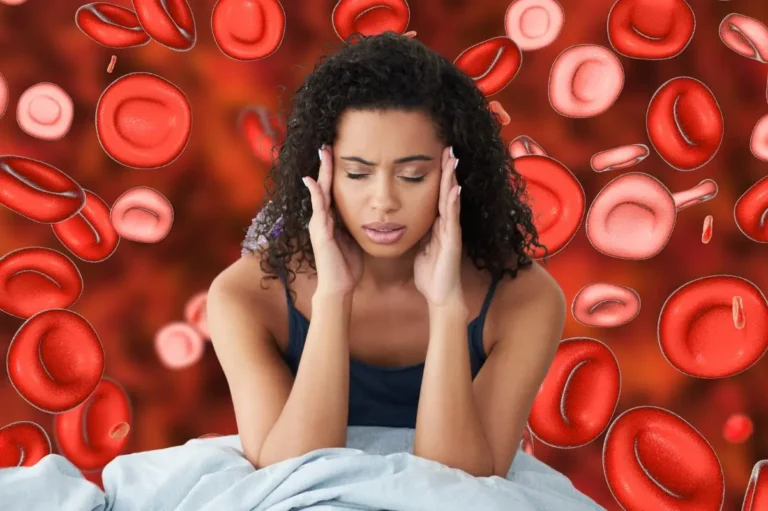7 Strange Symptoms of Hormonal Imbalance Most Women Ignore
Hormonal changes aren’t always apparent. While mood swings, acne, and missed periods can indicate hormonal imbalances, other symptoms like dry eyes, itchy ears, and constant anxiety can also be signs of hormonal imbalances.
Hormones play a crucial role in regulating almost every system in the body, including the skin, sleep, digestion, and mental health. When hormone levels are imbalanced, even seemingly insignificant or bizarre symptoms can serve as red flags, indicating that your body is attempting to communicate its needs.
Hormones, chemical messengers, can become unbalanced, leading to strange and seemingly unrelated symptoms even with small changes, as explained by Dr. Aviva Romm, MD, an integrative medicine physician and hormone expert.
Here are seven unusual signs of hormonal imbalance that most women overlook, along with what to do if you notice them.
1. Itchy Ears or Skin Sensitivity
Yes, your hormones can cause itchy ears. Declining estrogen levels, particularly during perimenopause, can lead to dry and irritated skin, even in unusual areas like inside the ears or under the bra line.
Estrogen, a hormone, plays a crucial role in maintaining skin hydration and collagen production. However, when estrogen levels are low, it can lead to increased sensitivity and reactivity to allergens or weather changes.
2. Persistent Fatigue Even After Sleeping Well
If you’re getting 7–8 hours of sleep but still feel exhausted, your thyroid or adrenal hormones might be the cause. Chronic fatigue can arise from low cortisol levels, hypothyroidism, or blood sugar dysregulation caused by insulin resistance.
Fatigue, a prevalent and often misunderstood hormonal symptom, is frequently dismissed as normal, particularly for women juggling work, home, and family responsibilities, according to Dr. Sara Gottfried, MD.
3. Dry Eyes or Blurred Vision
Dry, irritated eyes can be more than just screen time. Low estrogen and thyroid dysfunction can reduce tear production and lead to dry eye syndrome.
Studies have revealed that women with hypothyroidism or menopause are more prone to experiencing chronic dry eyes and even blurred vision during hormonal shifts.
4. Unexplained Weight Gain (Especially Around the Belly)
Gaining weight without changing your diet or activity levels? This could point to high cortisol, insulin resistance, or low progesterone—especially if fat is accumulating around your midsection.
Stress hormones and insulin collaborate to store belly fat as a protective mechanism, according to Dr. Brighten. It’s not merely about calories; it’s about the intricate chemistry involved.
5. Sudden Food Sensitivities or Bloating
Developing food intolerances you never had before? Estrogen, progesterone, and cortisol affect gut health. When imbalanced, they can lead to leaky gut, bloating, gas, and even new food reactions.
Discover the best foods for gut healing and bloating relief by learning more here: Best Foods for Gut Healing and Bloating Relief.
6. Hair Shedding or Thinning at the Temples
If you notice your ponytail thinning or having more strands in the shower, don’t ignore it. Hormones like testosterone, DHT, and thyroid hormones regulate the hair growth cycle. Imbalances in these hormones can lead to shedding or pattern thinning, particularly near the temples or part line.
7. Sudden Anxiety or Mood Swings
Feeling panicked, restless, or easily overwhelmed, even without a clear reason? Low progesterone (which is calming) or high cortisol levels can cause anxiety, brain fog, or even rage attacks around your menstrual cycle.
According to the Mayo Clinic, fluctuations in estrogen and progesterone levels can directly influence neurotransmitters such as serotonin and GABA, which in turn affect mood and mental clarity.
Why It Matters: Ignored Symptoms Can Delay Diagnosis
Hormonal imbalances are often misdiagnosed or dismissed altogether, particularly in younger women.
Dr. Jolene Brighten explains that women are often dismissed when they complain of symptoms, which are often attributed to stress, PMS, or mental issues. However, ignoring early signs can lead to serious conditions such as PCOS, hypothyroidism, or adrenal burnout.
Early detection and holistic support can prevent years of struggle and restore hormonal balance naturally.
What You Can Do Actionable Tips to Support Hormone Balance
Nourish with Hormone-Supportive Foods
- Cruciferous veggies (broccoli, kale) for estrogen detox
- Healthy fats (avocados, flaxseeds) to boost progesterone
- Wild-caught fish (omega-3s) to reduce inflammation
Lifestyle Changes That Matter
- Prioritize 7–9 hours of sleep
- Incorporate resistance training and walking
- Reduce endocrine disruptors (plastics, fragrances)
- Manage stress with breathwork, journaling, or adaptogens
Trust the Subtle Signals
Hormonal imbalances often manifest subtly, rather than in dramatic ways. If you notice any of these unusual signs, pay attention to your body and consult a hormone-literate healthcare provider.
You don’t have to simply “deal with it.” Your body’s wisdom is trying to guide you; don’t ignore it.
Check out the healthlynic ✔️approved range of products for Weight Loss, Improve metabolism and much more!







